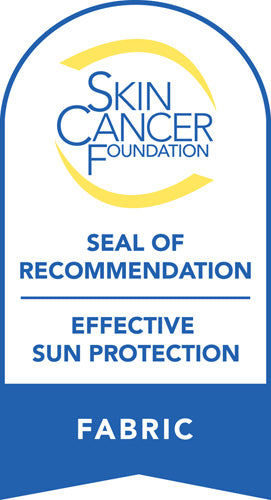What Does Too Much Sun Do to a Kids Skin?
Child development specialists recommend that children spend about three hours per day outdoors for optimal health and development. Spending time outdoors in the sun is good for children, but too much sun exposure can be harmful.
Protecting your child from UV rays is just as important as giving them that crucial time outdoors, but why? And how can you balance their need for outdoor time with their need for sun protection?
We're here to answer your questions. Read on to learn all about childhood sun sensitivity and the steps you can take to minimize damage.
Are Children More Sensitive to Sunlight?
Did you know that children are actually more sensitive to sunlight than adults? While everyone should do their best to avoid excess sun exposure, children are particularly at risk due to their sensitive skin.
This sensitivity goes down over time, but during the first few months of a child's life, it's actually recommended to keep them out of the sun as much as possible, even if you're using sun protection. Babies have far more sensitive skin than older children.
Sun exposure is important and healthy for children, but too much is detrimental to their overall health.
But what are the risks of too much sun exposure?
Sunburn or Sun Poisoning
Of course, the first negative outcome of too much sun exposure is sunburn. It can appear even after just a few hours of excess sun exposure. The skin turns red and becomes warm to the touch.
Even mild sunburn can be uncomfortable.
Most parents are aware of sunburn and take steps to protect their children, but often don't use enough sun protection. They may not consider that a child's scalp can get sunburned, for example.
Sun poisoning happens when there's significant sun exposure. Instead of the skin turning red and dry, it blisters. Children with sun poisoning often require medical attention.
Higher Chances of Skin Cancer
Many parents don't consider the fact that children can develop skin cancer. While it's not as common for children to show signs of skin cancer right away, early sun exposure can result in it developing in adulthood.
Potentially Quicker Aging in Adulthood
This is another thing many parents don't consider, especially when their children are young! Excess sun exposure in your child's early years can still lead to rapid skin aging when they get older.
While your child's skin is still growing and regenerating all the time, sun damage can be lifelong. The occasional mild sunburn may not be problematic, but excessive sunburn and other sun damage can be.
How to Protect Your Child's Skin From the Sun
So as a parent, how should you be protecting your child's skin from the sun? While there's no foolproof way to keep your child safe, there are steps you can take to minimize damage. Here are a few sun safety tips for parents.
Avoiding Sun Exposure
The first and most obvious way to protect your child's skin is to avoid sun exposure completely, especially during your child's first six months.
Older children should be going outside to play, but infants have such sensitive skin that even minor sun exposure can be problematic. When you must take your infant outside, use a covered (and breathable) stroller or carrier.
Even with older children, try to avoid sun exposure during peak times. They'll likely be going outdoors during school and daycare, but when you have them at home, wait until the sun isn't so strong.
Sunscreen
Sunscreen is crucial for children and babies (and people of all ages at that). Your child should never spend significant time outdoors without applying sunscreen first.
Sunscreen with a higher SPF rating is ideal, especially for children with very pale skin. It's best to apply sunscreen every two hours (potentially more often if your child is sweating or swimming).
Eye Protection
Your child's eyes are also sensitive to the sun, as is the sensitive skin around their eyes. It's best to make sure your child always has eye protection if they're going to spend significant time outdoors.
Of course, if your child plays sports or otherwise stays active outdoors, they may not always be able to wear adequate eye protection. Do what you can to minimize damage.
Hats
Hat, especially for babies, are crucial for sun protection.
A wide-brimmed hat or cap will keep the sun out of your child's eyes and off their face. They'll also protect your child's scalp from sun overexposure so you don't have to worry about applying sunscreen there (which is tricky at best).
Sun Protective Clothing
Did you know you can get UV-protective clothing for your child? This clothing protects your child against up to 98% of UV rays. The clothing is also breathable so children should be able to wear it during most types of weather.
Even during winter and fall, UV-protective clothing can be helpful. Remember, it doesn't have to be hot outside for your child to get excess sun exposure.
Protect Your Child From Too Much Sun
Sun exposure is a good thing, but only in moderation. Too much sun can harm your child's sensitive skin and cause potential long-term damage. Be proactive by protecting your child's skin while they're still young.
Are you looking for special UV-protective clothing for your child? We have what you need. We have sun-protective clothing for children, toddlers, and even adults!
Check out our kid's section and buy some sun protection for your child today.



